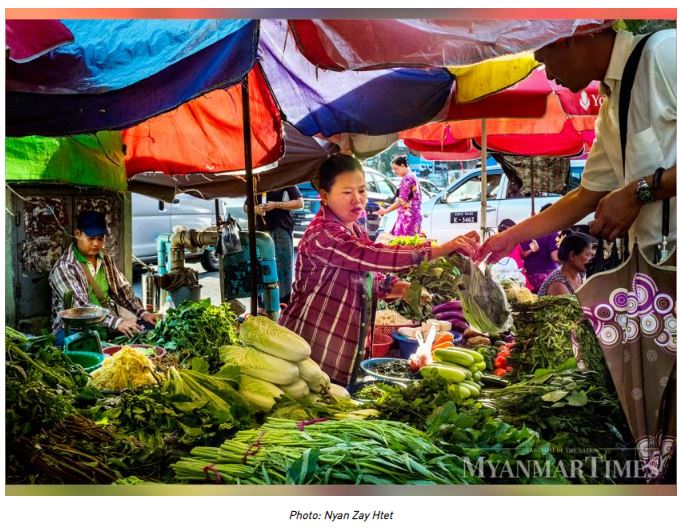Myanmar: Economy to expand by as much as 7.1% this year: AMRO
The Myanmar economy is expected to expand by 6.8 percent between October 1, 2018 and September 30, 2019 compared to 6.5pc in the previous year, according to the 2019 Annual Consultation Report on Myanmar published by the ASEAN+3 Macroeconomic Research Office (AMRO) on Tuesday.
Growth is expected to pick up further, to 7.1pc in fiscal 2019-20, buoyed by reform momentum, improving business sentiments, strong growth in garment and other manufacturing products, an expansion of tourism-related services and stronger fiscal spending, AMRO said.
AMRO’s forecast is the most positive so far, with the Asian Development Bank projecting growth of 6.6pc for fiscal 2018-19 and 6.8pc in 2019-20. The International Monetary Fund expects economic growth of 6.4pc in fiscal 2018-19 if government spending picks up, leading to growth of 6.6pc in 2019-20.
While Myanmar’s economy could be affected by weaker demand from China as a result of the US- China trade tensions, it also stands to gain from investment inflows due to the accelerating relocation of manufacturing into Myanmar if it is able to improve the business environment and upgrade its hard infrastructure and economic institutions, AMRO said.
It added that the implementation of the reserve money-targeting framework and increased flexibility in interest rates is “commendable.”
“The Central Bank of Myanmar (CBM) should also continue to let the exchange rate adjust to market forces and continue to build up its holdings of international reserves to strengthen its capacity to manage external shocks,” AMRO said.
There are risks to AMRO’s projections, of course, mainly from ethnic tensions in Rakhine State, uncertainties in the global economy related to trade protectionism and energy prices.
The banking system, too, remains weak and is still transitioning to a more stringent banking regulatory framework.
“Improving the soundness of the banking system requires further strengthening of the CBM’s regulatory and supervisory capacity. Ongoing reforms of state-owned banks should continue, although medium-term rehabilitation is needed to mitigate the risk to financial stability,” it said.
While lauding the launch of the Myanmar Sustainable Development Plan, AMRO noted that there is an urgent need to address infrastructure bottlenecks and human resource constraints to raise private sector investment and raise growth potential. “In addition, it is imperative to enhance public service capacity to implement policies and strengthen the tax revenue system to provide a stable and adequate source of funding,” AMRO said.
And while the increase in electricity tariffs is welcome as it is expected to alleviate the fiscal burden, the move is expected to drive up inflation in the shorter term. Inflation is projected to hit a high of 8.8pc in fiscal 2018-19 and to around 9pc in fiscal 2019-20, partly due to electricity tariff hikes, AMRO warned.
Source: https://www.mmtimes.com/news/economy-expand-much-71-year-amro.html


 English
English




